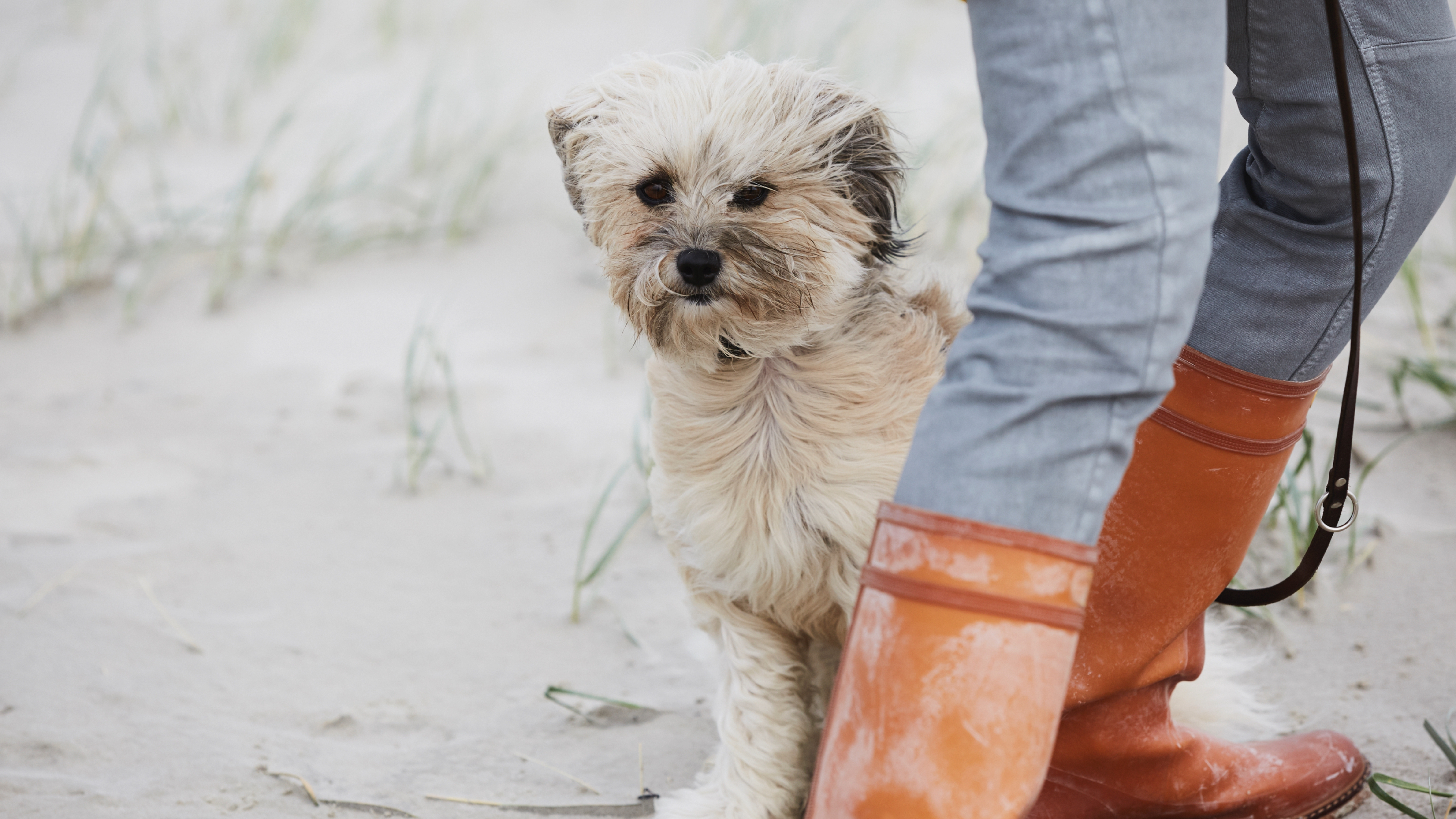5 ways to help your anxious dog become more confident, according to an expert
If your pup is anxious, take things slow and make sure they have a safe space.

Get the best advice, tips and top tech for your beloved Pets
You are now subscribed
Your newsletter sign-up was successful
Sometimes, it can seem as though our dogs just go through life without a care in the world. However, some dogs can be more anxious than others.
There are lots of reasons why your pup might be anxious – they could be one of the dog breeds most likely to have separation anxiety, experienced something traumatic before you gave them their forever home, or just be wary of unfamiliar things like new people or locations. But no matter the reason, sometimes our dogs will prefer seeking solace in one of the best calming dog beds than exploring the world.
If your dog is anxious, there are things you can try to help them build up their confidence, and expert trainer and behaviorist Renee Rhoades of R+Dogs has offered some tips in a recent Instagram post. So, let’s take a look!
1. Create a safe space: “Provide your dog with a secure sanctuary for times of stress,” says Rhoades. “It should be peaceful, snug, and restricted to trusted humans only.”
Ensure that your pooch always has the option to access this space as they please, without any restrictions.
2. Stimulate their mind: Mental stimulation is so important, whether your pup is anxious or not. But dogs who have plenty of mental stimulation tend to have lower stress levels and are often better behaved, too.
“These activities encourage your dog to problem solve, which can increase confidence,” Rhoades says.
Get the best advice, tips and top tech for your beloved Pets
3. Learn their language: Dogs communicate largely through their bodies. While it’s not an exact science, learning how to read dog body language and understand their signals can help you recognize and understand when they feel anxious. This way, you can respond accordingly, build trust, and in turn help reduce their anxiety.
4. Be a creature of (kind) habit: “Being consistent can reduce anxiety by predictability,” Rhoades explains. “You don’t need to do everything at an exact time, just a consistent pattern.”
By being consistent, and always being positive – try not to show any frustration! – you can help your pup improve their confidence in the long run.
5. Be a turtle: In other words, take things nice and slow. Don’t rush your dog. Anxiety in dogs can mean that they don’t respond well when they’re pushed into new or uncomfortable situations, so be patient and meet your furry friend at their pace. If they’re communicating that they’d like to slow down or stop at any point, listen to them.
And remember, as Rhoades says, “It’s important to understand that your dog’s nervousness is not a sign of weakness but a call for support from you.”
For more advice on helping your pup, here are 32 ways to support a scared or anxious pet. You might find this article useful, too: Eight reasons why your dog is anxious (and how to help them).

Adam is a freelance journalist specialising in pets, music and culture, and mental health and wellbeing. He investigates and writes the large majority of news on PetsRadar, and collaborates with veterinary experts to produce informative pet care content.
Adam has a journalism degree from Southampton Solent University and a masters degree in Magazine Journalism from Cardiff University. He was previously senior editor at dog advice website DogTime.com, and has also written for The Independent, GoodToKnow and Healthline.
He owns two rescue cats, Bunny and Dougie, and has also previously had a rabbit, fish and Roborovski dwarf hamsters.
